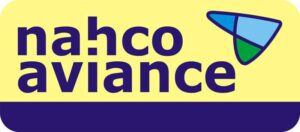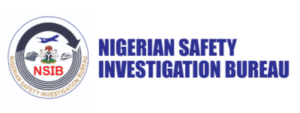Air safety: NAMA trains airspace managers on latest technology
By Seun Ibiyemi
In a bid to enhance air safety in the Nigerian sky, the Nigerian Airspace Management Agency (NAMA) has said it is prepared to train airspace managers on the latest navigational equipment around the world.
NAMA, in a statement on Sunday, said its airspace managers would be trained on Global Air Navigation Plan, which would further enhance their jobs and increase air safety in the country.
The acting managing director, NAMA, Mr. Matthew Pwajok, in the statement hinted that the training is targeted at equipping them with global trends in strategic air traffic management and also building their capacity for seamless airspace operations in their various domains.
Pwajok insisted that it was imperative to keep the airspace managers at the nation’s airports abreast of global trends in airspace management, stressing that aviation is internationally regulated without local regulation.
Abreast with state-of-the-art equipment: As a result of this, he said every airspace manager must be up-to-date about the state-of-the-art equipment in the sector, adding that this would further enhance safety in the system.
Pwajok noted that the training would expose managers to Global Air Navigation Plan, Regional Air Navigation Plan, and National Air Navigation Plan just as it would keep them acquainted with the Civil Aviation Policy, which he said, is the framework that guides operations nationally.
He said, “As aviation is global, there is no Nigerian aviation standard. We are not operating in isolation and so we are maintaining international standards. We are benchmarking and implementing the International Civil Aviation (ICAO) Standards and Recommended Practices (SARPs).
“You must also be kept abreast of the Aviation Roadmap or master plan of the federal government; our Communication, Navigation, Surveillance/Air Traffic Management (CNS/ATM) Master plan and the milestones towards attaining these master plans because these are frameworks within which we are expected to operate in carrying out our statutory function as the nation’s airspace manager.”
The NAMA boss said airspace managers needed to be top-notch in understanding the national air navigation plan as it relates to the implementation strategies, milestones, timelines, and technology roadmaps for achieving the national plan and the strategic position of NAMA in the entire plan.
He also solicited for their buy-in to ensure successful implementation.
Pwajok said with the increased pressure on the aviation industry at the global, regional and national levels following the growth in passenger and cargo, there was a need for the agency to grow capacity to be able to cope with the increasing traffic.
He added that insecurity, expansion in the economy, and the upsurge in political activities in Nigeria had also accounted for increased demand for air travel, hence the need for strategic air traffic management that would ensure seamless operations.
He also cautioned managers at airports with limited hours of operations not to turn down requests for extension of services “especially at this period of electioneering as this could be given political coloration.”
He declared that the Minister of Aviation, Sen. Hadi Sirika sees aviation as a support role to every sector and to everybody, irrespective of political leaning.
Besides, he canvassed the support and buy-in of managers with respect to the aviation roadmap being implemented by the minister, which he said would enhance the growth of the industry.
According to him, airports the world over are best handled by experts who run them as a business and not by the government.
He insisted that the concession of airports in Nigeria would attract direct foreign investment necessary for export expansion, development of aerotropolis, airport cities, and cargo terminals as well as maintenance, repair, and overhaul (MRO) operations.




